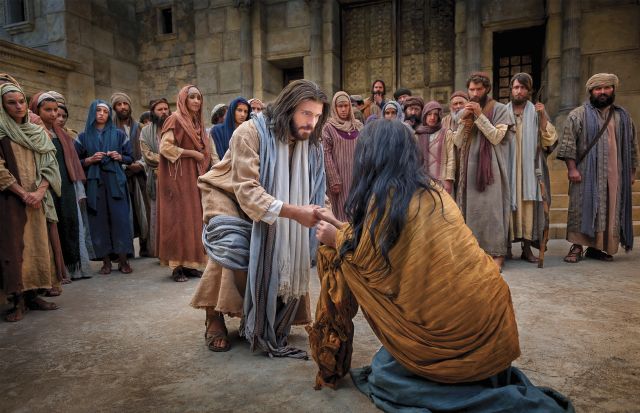Where Do You Stand?
In today’s Gospel, a woman is caught in adultery. She’s dragged in front of a crowd. The Pharisees demand punishment. They ask Jesus what to do. But He doesn’t answer them right away. He kneels and writes in the dust.
This story isn’t just about her. It’s about all of us. It’s about the way we live, the way we treat others, and the way we lead.
Fr Dom asked us something simple, but bold:
Where are you in this scene?
Maybe you’re the accuser. Quick to spot a fault. Ready to call someone out. You speak of truth, but forget love. It happens in our homes, in parish ministries, even in WhatsApp groups. We take on the role of moral police. We judge harshly. We forget that we’re all still growing.
Or maybe you’re part of the crowd. Watching from the sidelines. Saying nothing. Taking no stand. You follow whatever voice is loudest. You go with the flow to avoid conflict. It’s easier. But silence can also hurt.
Then there’s the accused. The woman. Ashamed, afraid, exposed. Maybe that’s you. Maybe you’ve made mistakes. Maybe you’ve felt judged, even in church. Maybe you’ve been left behind while others walked away. Maybe you’ve asked, “Why only me?”
There’s also the escapee. The man in the same sin but nowhere to be found. He walks free. Was he one of them? Was he respected? Was he protected? In ministry or at work, do we do this too? When things go wrong, do we let others take the fall? Do we back off and stay quiet when it’s our mess too?
We carry all these roles inside us. Some more than others. But they’re all there. In leaders. In members. In everyone.
Only one person in this story is without sin.
Only one person has the right to judge. And He doesn’t.
Jesus looks at the woman and says, “Has no one condemned you?”
She says, “No one, sir.”
He replies, “Neither do I. Go, and sin no more.”
He speaks truth. But He leads with mercy.
He doesn’t dismiss the sin. But He doesn’t shame her either. He gives her a way forward.
And that’s what we are called to do too.
Whether we’re serving coffee, sweeping the floor, managing the choir, chairing a committee, or preaching at Mass, we’re called to lead with mercy. Not judgement. We’re called to help, not to harm. To restore, not to reject.
So how do we start?
We follow three simple steps: See. Judge. Act.
See.
Don’t just look at what someone did. Look at the whole person.
Why did it happen? What’s behind it?
What wounds are hidden underneath?
Judge.
Not to condemn, but to guide. To speak the truth but with care.
Jesus didn’t lie to the woman about her sin. He just didn’t crush her with it.
Real judgement doesn’t tear down. It points someone back to grace.
Act.
Don’t run. Don’t hide. Don’t stand still.
Step in. Offer a hand. Restore trust.
Act like Jesus. With love. With courage. With hope.
This Gospel is more than a reminder. It’s a mirror. It’s asking us:
Who have you been?
And who are you becoming?
Let’s help each other get up again. (BV)

